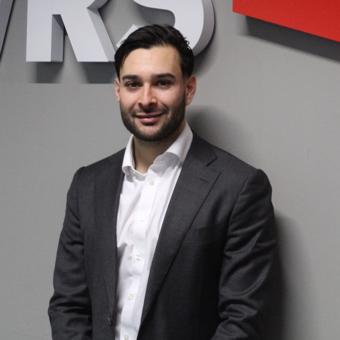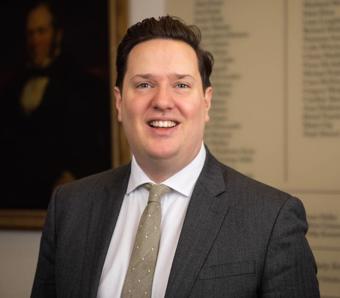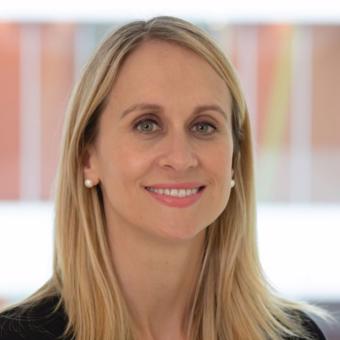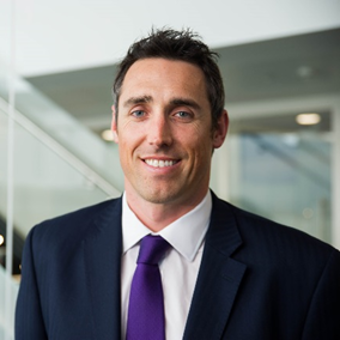Simon Holdsworth – managing partner of Thrings – on London, international work, the firm’s growth, expansion and talent retention
Simon, thanks for agreeing to be interviewed for The Brief. Firstly, can you give us a quick rundown of your own career to date?
I’ve been with Thrings for almost 20 years. I joined in 1997; I was made a partner in 2000 and then managing partner in 2013. I’m responsible for managing the legal and operational side of the business as well as setting and implementing our strategic plan.
How closely does the London office work with your teams in Bristol, Bath, Swindon, Frome, Reading & Marlborough?
When we opened the London office in 2007 we didn't want to use it as a shop window for our well-established offices in the South West. The importance of ensuring it was integrated and connected with our other offices was made clear to everyone from the outset and indeed it has been a strong selling point for people who have joined us since 2007. As our work in London has grown there has been far better collaboration between our teams. For example, if we have a client in London but the work can be better serviced in another office - or a combination of them - then that’s what happens. Cross-selling is also very important as that again drives collaboration. The firm doesn’t operate on a ‘profit by office’ basis; by taking this approach, we ensure our teams’ heads are freed up to look at the bigger picture.
Would you ever consider opening a base outside of the South/ South West?
It’s interesting to see how different firms are dealing with the growth imperative. For many businesses ‘growth’ is a real buzz word, especially after so many years of relative stagnation. There’s now a big push with firms looking at their market share and how they can best build on them. People have approached growth in different ways; some have opted for mergers in other regions but our patch is London and Southern England. Never say never but I don’t see a shift towards the Midlands or the North in the offing anytime soon.
For me, those kinds of moves should only be about reacting to client needs or demands. We do, of course, act for clients outside of the South, but for now there’s no commercial reason to open anywhere else as we can service them from where we are. However, we are considering our options in relation to the South coast, potentially in Hampshire. We are the NFU panel firm for the South East so that could be a springboard and a good reason to expand down there.
Are mergers and acquisitions part of your strategy moving forward?
When it comes to mergers my view is that you need to think very carefully about why you’re doing it. You need to ask yourself: How are our clients going to benefit if we double in size? Will it change the client profile we have? And how does it work from an aspirational perspective? We’re happy to be masters of our own destiny so we’re not looking for merger partners and I don’t think we will be in the next five years.
Acquisitions is a harder one though. There are many firms which are looking to be acquired and we’ve acquired firms which complement our existing operations and support our growth strategy. What interests us more is a combination of organic growth coupled with strategic team investment. If you choose this option you can pick the skills you actually want. This simply doesn’t happen if you buy a whole firm as you don’t always need every team in that firm.
What parts of the business do you think will see the biggest growth over the next few years?
We’ve seen Commercial Property double in size over the last five years which is something we’re very proud of. We now offer the full gamut of property work and that’s been achieved via organic investment and key lateral hires. I also think there will be greater synergy between the Company Commercial team and other departments across the firm with a focus on M&A and corporate work. Agriculture is another key area for us and we are aiming to develop our international expertise out of London. I don’t foresee the need to open an office overseas but we will be looking to grow our international networks and leverage those relationships.
What’s the biggest challenge the firm currently faces?
Probably attracting and retaining talent. During the recession many areas saw a lack of recruitment so we’re still facing a dearth of good candidates – especially in the Corporate and Commercial disciplines. We’ve also seen a shift in what candidates are looking for. This means that firms now need to sell themselves as competition to recruit the best people is stiff. The focus is on showing that you can offer an enjoyable and aspirational working experience as well as a robust career path.
However, it’s not just about bringing in new blood as you’ve got to pay careful attention to the existing talent you want - and need - to keep. We spend a lot of time getting our teams’ viewpoints which is incredibly useful as it can help us set the firm’s direction but it also gives them a voice. Training, coaching and mentoring are vitally important too, as is openness and honesty. We actually went to our junior fee earners and asked them how they wanted to be managed and what they wanted from their careers. We also run regular fee earner (non-partner) meetings which allows them to network but also share what they’d like to see happen.
Where would you like the firm to be in five years' time?
We will be in excess of £30m turnover and have a solid reputation as a strong firm in the South of England. We’ve changed a lot in the last few years as we concentrate on what we excel at and now the focus is firmly on being a compelling commercial business.
What makes Thrings different?
That’s a hard one as every firm will use similar statements such as “being client focussed” or “client-centric”. We are all of those things but longevity – both internally and externally - is what stands us apart. I’ve been here 20 years but I’m not the only one as it’s the same for many of our partners who joined as NQs or trainees. We promote from within which drives a sense of belonging. We also know what space we occupy, we don’t worry what other firms are doing and we’re comfortable in our own skin.
Finally, have you still got career goals that you personally want to achieve?
I’m up for re-election in April and I would like to continue to lead Thrings for as long as I feel I can make a difference. I certainly don’t want to be managing partner anywhere else and I want to lead the firm into whatever challenges might come its way. I think that’s more than enough to be getting on with!
T: @ThringsLaw
F: https://www.facebook.com/thringslaw
L: https://www.linkedin.com/company/thrings










